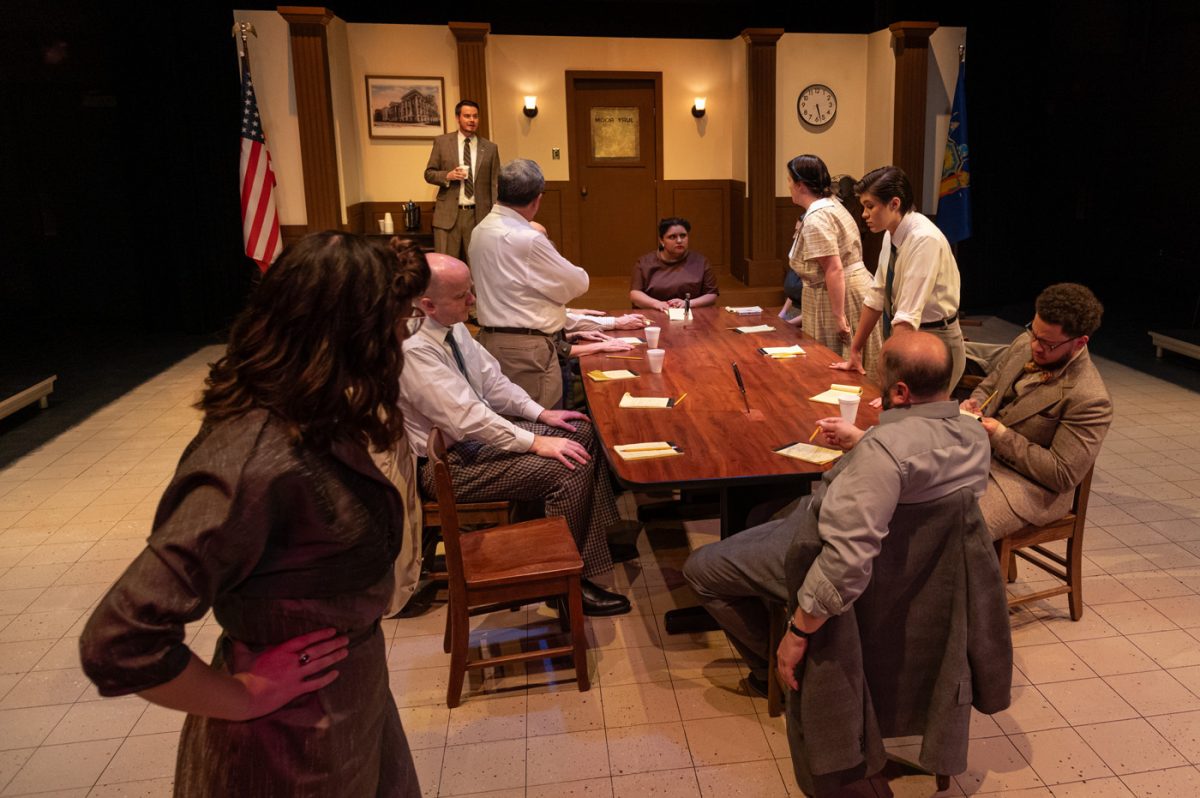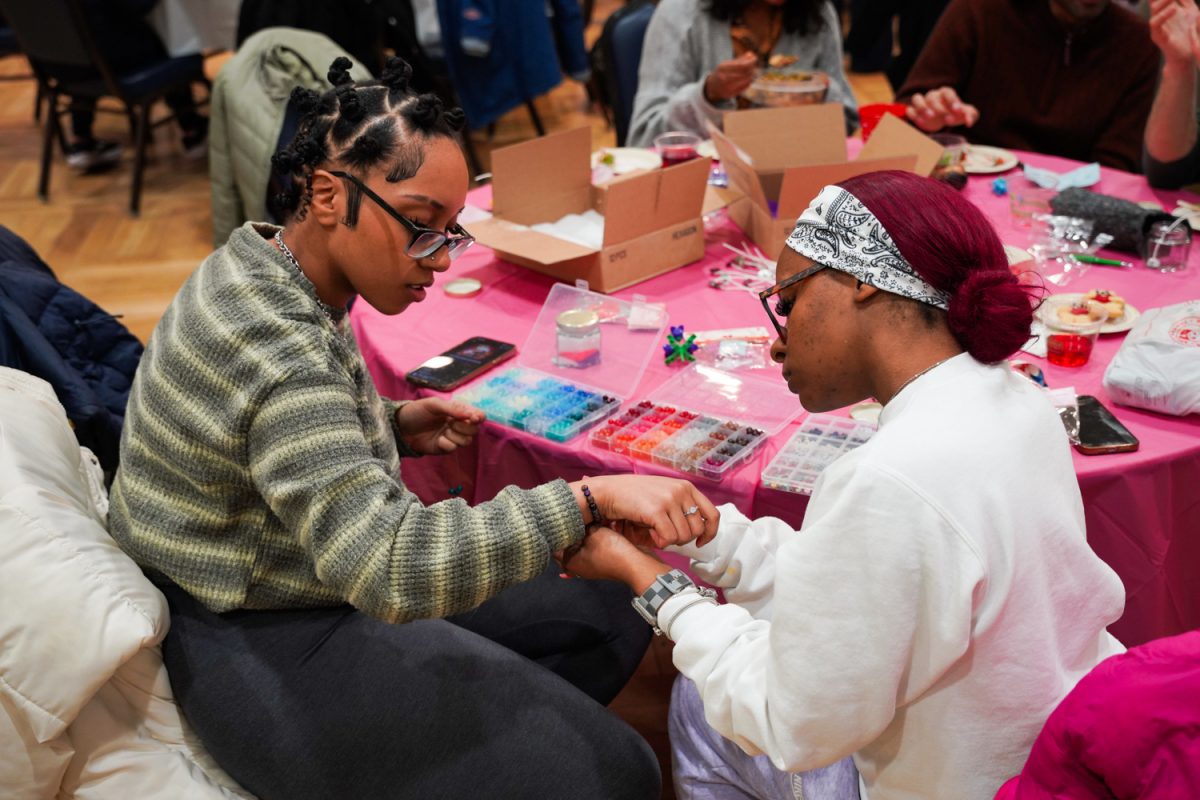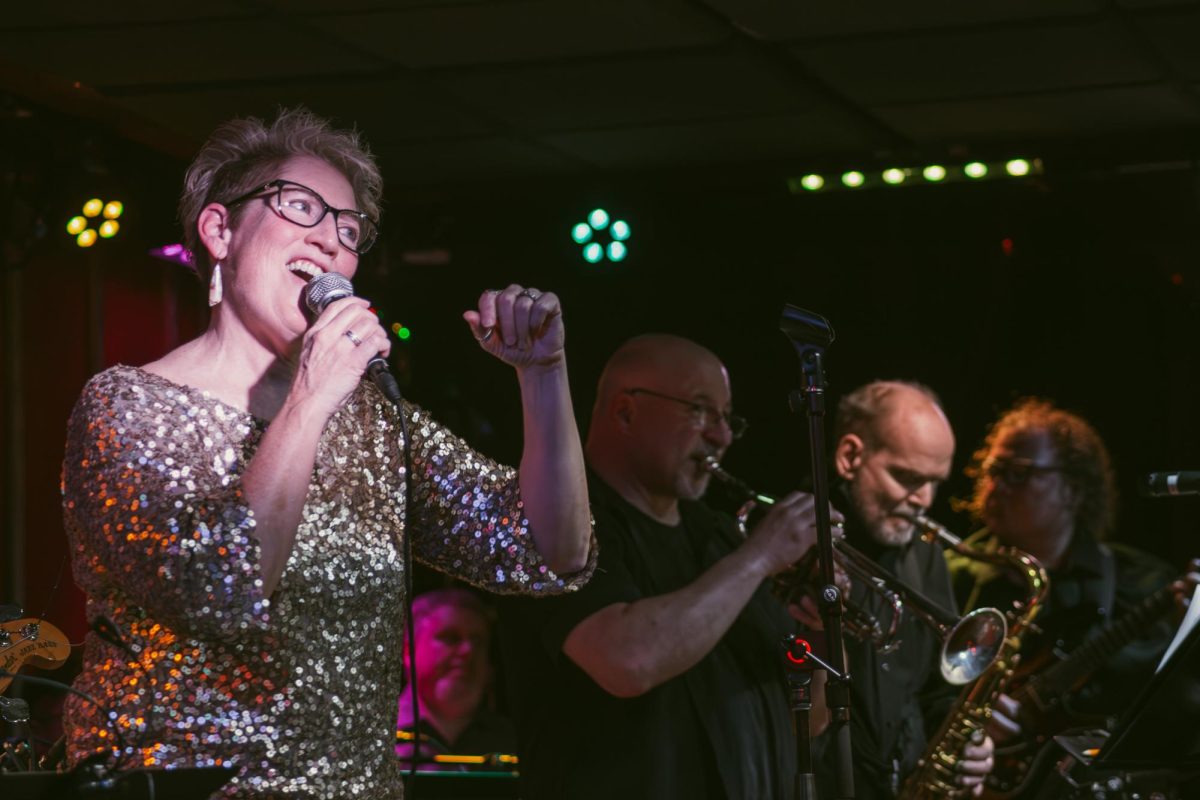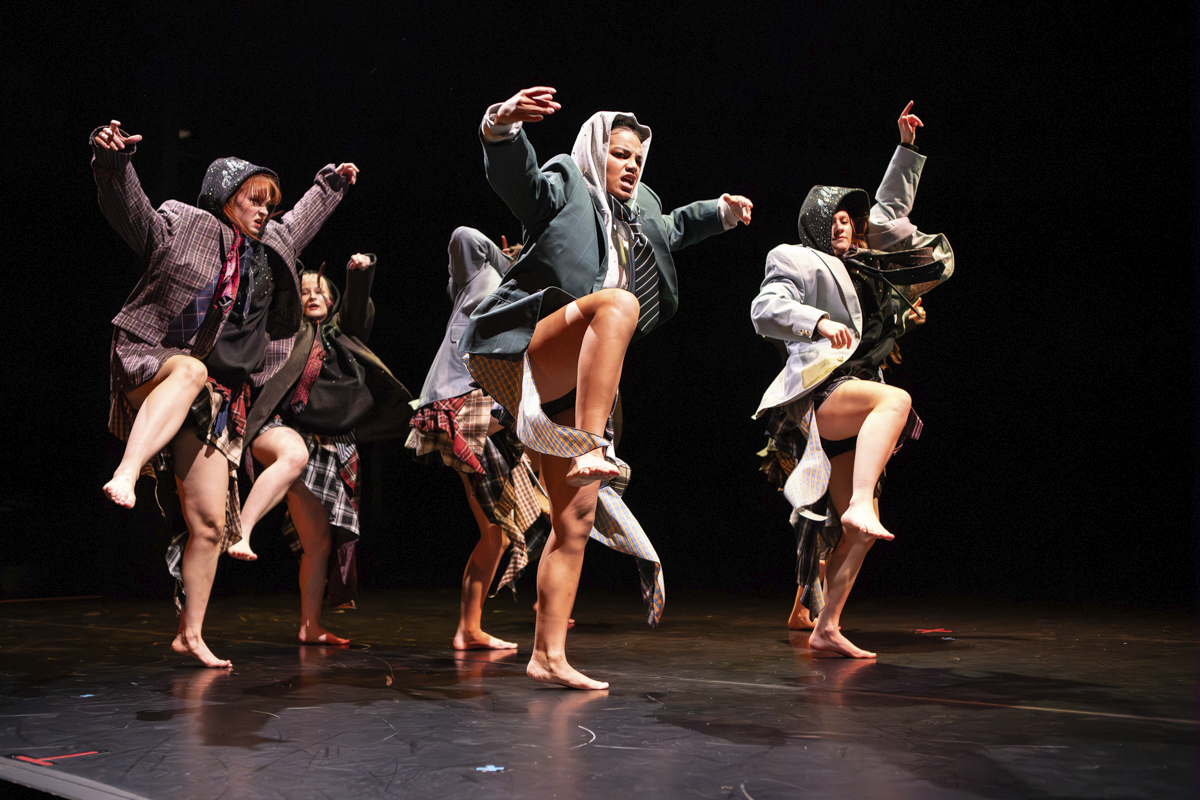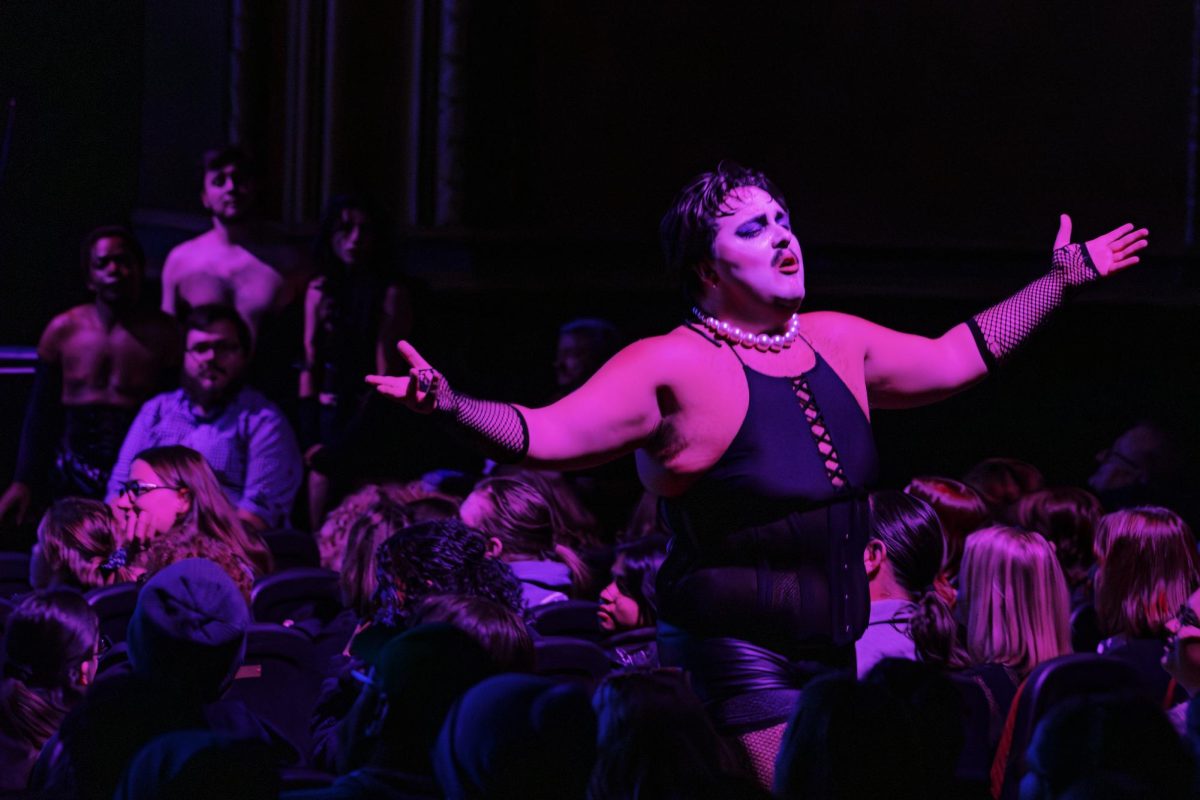**This review contains spoilers.**
Parkland Theatre held the opening night of its first show of the season, “12 Angry Jurors,” on Thursday to a sold-out crowd. The emotionally driven performance by its ensemble of — of course — 12 was nothing less than notable.
“You have to find a way to sort of have everyone’s voice be in the room, and everyone sort of contributes equally — hopefully — and that’s been very much that on this production,” said BJ Gailey, director of the play. “Our goal was that we wanted it to feel like you were really in the room with them.”
The theatre has rehearsed for around five weeks, four days a week and three hours each day, according to Gailey.
Get The Daily Illini in your inbox!
Based on the Emmy-award-winning teleplay “12 Angry Men” by screenwriter Reginald Rose, the drama was adapted by playwright Sherman Sergel. The play surrounds 12 jurors locked within a jury room with a seemingly straightforward case of a 19-year-old man murdering his father.
All but one of the jurors convince themselves of the 19-year-old’s guilt; Juror Eight (James Castree) votes not guilty.
“This is a play about a group of people; they have to reach a unanimous decision, all 12 of them, and the results of that decision are catastrophic either way,” Gailey said. “Unless they get it right, they’re either going to let a murderer out on the street, or they’re going to put an innocent man to death.”
The 80-minute play transpires with no time passage unseen of the characters’ lives. The setting remains unchanged throughout the show, furnished with a long wooden table to seat 12, a functional window and a usable door to pass props through as evidence.
“I’ve been in many plays where you’re on for a little bit depending on your role,” said Mary Rose Cottingham, who played Juror Eleven. “But you’re acting all the time, so it’s really fun to start developing relationships with the other jurors.”
As the lights darkened and the actors took to the jury room, a yellowish-colored light shone on the 12. After Juror Eight declares that the six-day trial is “not as simple as ABC,” arguments and attitudes flare to reveal each character’s individuality.
Tony Curtis, who played Juror Seven, is the mind behind one of the handful of antagonists of the group. One of his first lines begins with him voicing how he hopes the decision goes quickly so he can attend a baseball game.
“He doesn’t care at all about the kid,” Curtis said. “He is willing to go along with whatever majority that people believe, not because of any deeply held belief, although he certainly — at the beginning — believes he’s guilty.”
Throughout the play, the actors pose the question of what’s reasonable doubt, a point initially made by Juror Eight in his never-ending contestation with the group.
Juror Three’s (Jamie McDaniels) fervent manner as a main antagonist intensifies with Juror Eight as time stretches, with her tirelessly claiming the 19-year-old is nothing more than guilty.
“This isn’t a game; this is a man’s life,” Juror Eight said after the other jurors and Juror Three distractedly played tic-tac-toe during the jury deliberations.
After every argument made by Juror Eight, others fall to his side. He provides countless evidence as to why the 19-year-old can’t be proven guilty beyond reasonable doubt.
The decision becomes 11-1 near the end of the play. Standing alone is Juror Three, who erupts into an impassioned plea about how the 19-year-old is guilty of hurting his father — guilty like her son, who has deeply hurt her in an unknown way.
Juror Eight informs her this man is not her son. Her decision changes to not guilty.
As the jurors return to the courtroom, the last image that resonates with the audience is that of Juror Three alone at the wooden table. With her head hidden from the audience, the only sound amplified throughout the theatre is a clock’s ticking, slowing down as each second passes.
“We wanted to do this show right now because we have to learn to listen to each other, and we have to learn to talk to each other and coexist, even if we don’t like each other,” Gailey said.
Parkland Theatre will hold four performances for “12 Angry Jurors” on Oct. 4, 5, 11 and 12 at 7:30 p.m. and two performances on Oct. 6 and 13 at 3 p.m. Tickets can be purchased online or from the ticket booth at the time of the performance.



